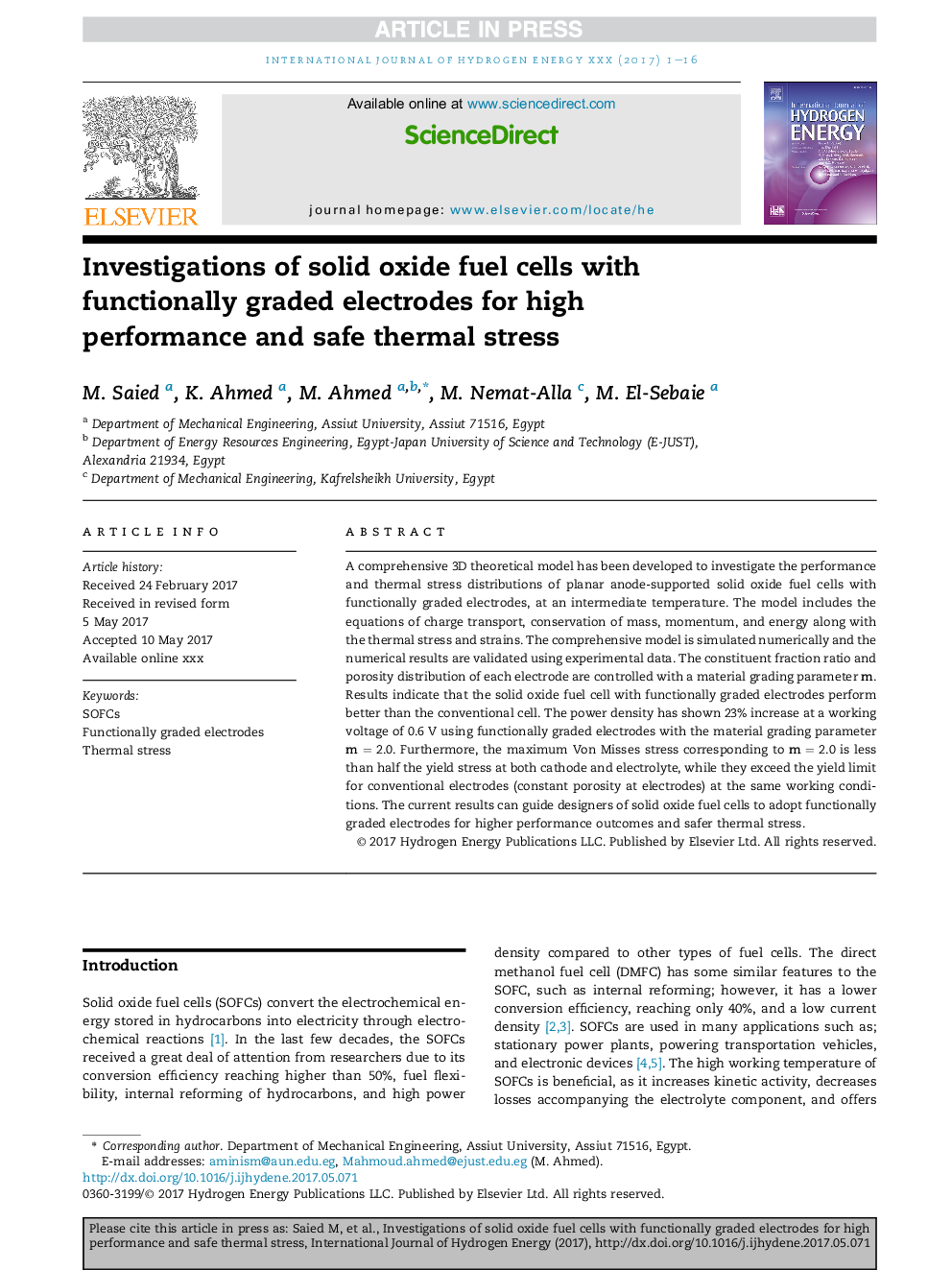| Article ID | Journal | Published Year | Pages | File Type |
|---|---|---|---|---|
| 5146473 | International Journal of Hydrogen Energy | 2017 | 16 Pages |
Abstract
A comprehensive 3D theoretical model has been developed to investigate the performance and thermal stress distributions of planar anode-supported solid oxide fuel cells with functionally graded electrodes, at an intermediate temperature. The model includes the equations of charge transport, conservation of mass, momentum, and energy along with the thermal stress and strains. The comprehensive model is simulated numerically and the numerical results are validated using experimental data. The constituent fraction ratio and porosity distribution of each electrode are controlled with a material grading parameter m. Results indicate that the solid oxide fuel cell with functionally graded electrodes perform better than the conventional cell. The power density has shown 23% increase at a working voltage of 0.6 V using functionally graded electrodes with the material grading parameter m = 2.0. Furthermore, the maximum Von Misses stress corresponding to m = 2.0 is less than half the yield stress at both cathode and electrolyte, while they exceed the yield limit for conventional electrodes (constant porosity at electrodes) at the same working conditions. The current results can guide designers of solid oxide fuel cells to adopt functionally graded electrodes for higher performance outcomes and safer thermal stress.
Keywords
Related Topics
Physical Sciences and Engineering
Chemistry
Electrochemistry
Authors
M. Saied, K. Ahmed, M. Ahmed, M. Nemat-Alla, M. El-Sebaie,
